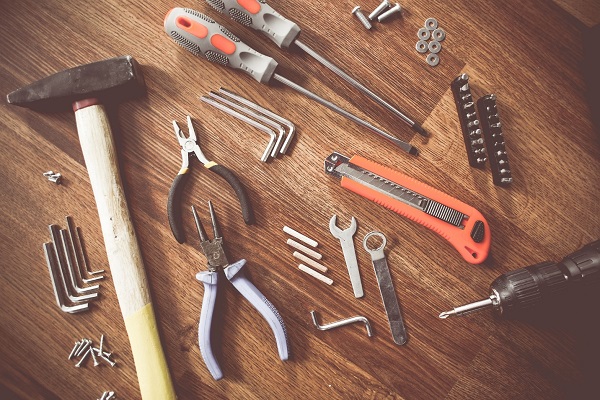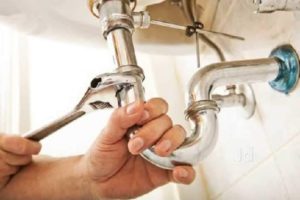Even though your heating, ventilation, and air conditioning (HVAC) system work in the background, it plays a vital role in providing comfort for your home. You may not immediately appreciate or notice its important role until it breaks down or malfunctions. Thus, ensuring that it always works at its optimum is essential to maintain that comfort.
HVAC experts recommend having an annual inspection of your HVAC system to ensure it gives you the service you need. Additionally, you should schedule it before the start of an extreme weather period. For instance, if you have longer harsh winters and shorter comfortable summers, it would be ideal to schedule the inspection before the winter period and vice versa. If you’re unsure when is the best time to have your HVAC system inspected, you can consult your local HVAC company for guidance. For example, if you’re in the Toms Brook area in Virginia, you can check dmselectservices.com/toms-brook/ and other similar service providers to schedule your annual HVAC system inspection.
What To Expect During An Annual HVAC Inspection
When HVAC technicians visit your home for the annual HVAC inspection, they will run, among others, the below checks and diagnostics:
- Test and calibrate the thermostat,
- Check electrical connections, wiring, insulation, and surge protectors
- Check and lubricate all moving parts
- Assess and check duct, coils, and pipes for leaks
- Check and refill refrigerant
- Assess the condenser and compressor
- Check the HVAC system for any rodent or pest infestation
There are other tasks like cleaning and replacing air filters that you can do monthly. However, you get a thorough lookover of your HVAC system by scheduling the annual inspection.
Below are some benefits of having your HVAC system inspected annually.
- Helps Avoid Costly Repairs And Replacements
The HVAC unit contains moving parts, ducts, conductors, and vents. While in use, these parts can malfunction, which need your immediate attention and action. For example, if the motor of an air conditioning unit gets dry, it needs to be lubricated to reduce wear and tear due to increased friction. Without the lubrication, it can break down, and you’ll need to get a new motor to replace it.
Annual inspections help assess such parts and perform the necessary maintenance work to keep these parts in good working conditions. It helps avoid breakdowns or repairs when you need it most. The cost you would incur would be the inspection and any minor materials used during the inspection.
- Helps Prolong The HVAC System’s Lifespan
Over time, the HVAC unit will gather dust, debris, wear and tear, and even rust. You’ll eventually need to replace some of the parts sooner than others. However, if there’s no regular and proper maintenance, your HVAC unit’s condition could deteriorate faster and necessitate premature replacement.
Scheduling an annual HVAC inspection can help diagnose and detect issues before developing into a bigger problem. You can know what needs immediate repairs and what small parts you can replace from an inspection. For instance, the HVAC technicians may recommend replacing your filters to reduce mold and mildew build-up in your HVAC system. If the molds grow in the ducts, they can trap water and increase the risk of rust. Additionally, if the ducts develop leaks, the water can get into electrical components and cause short circuits in the HVAC system.
Overall, having an annual inspection ensures that your HVAC unit receives thorough regular maintenance to keep it functioning in mint status. Thus, the unit’s components don’t overwork to achieve the desired conditions in your building.
- Help Save Your Energy Costs
Dust and debris can accumulate and gather in the duct and vents of your HVAC unit. Such foreign materials can clog your system and make your unit work more to achieve set conditions. Additionally, if you have a malfunctioning thermostat, the temperatures might be slightly off from the ones you set. It also works the unit a little extra. Other mechanical issues like motors not being well-lubricated can require more power intake to drive them.
All these issues mean that your energy costs increase progressively. However, you can ensure that the HVAC components are working at their optimum with an annual inspection. Thus, their energy consumption remains at a minimum. Cleaning the ducts and vents, lubricating the motors, and calibrating the thermostat help achieve desired conditions with less energy consumption, thus helping keep your energy costs low.
- Prevents Health Hazards And Allergens
An annual inspection ensures your comfort and helps keep your indoor air clean and healthy. When you have clean ducts, vents, and filters, health hazards like molds can’t develop. Additionally, by cleaning, you reduce dust and pollen in the HVAC’s vents, which can cause allergies and discomfort.
Conclusion
Sometimes, you may think that your HVAC system works fine and doesn’t need repairs or maintenance. However, without proper care, it can eventually be costly. Therefore, scheduling an annual inspection can help save on costs for repairs, energy, replacements, and avoiding health hazards.



